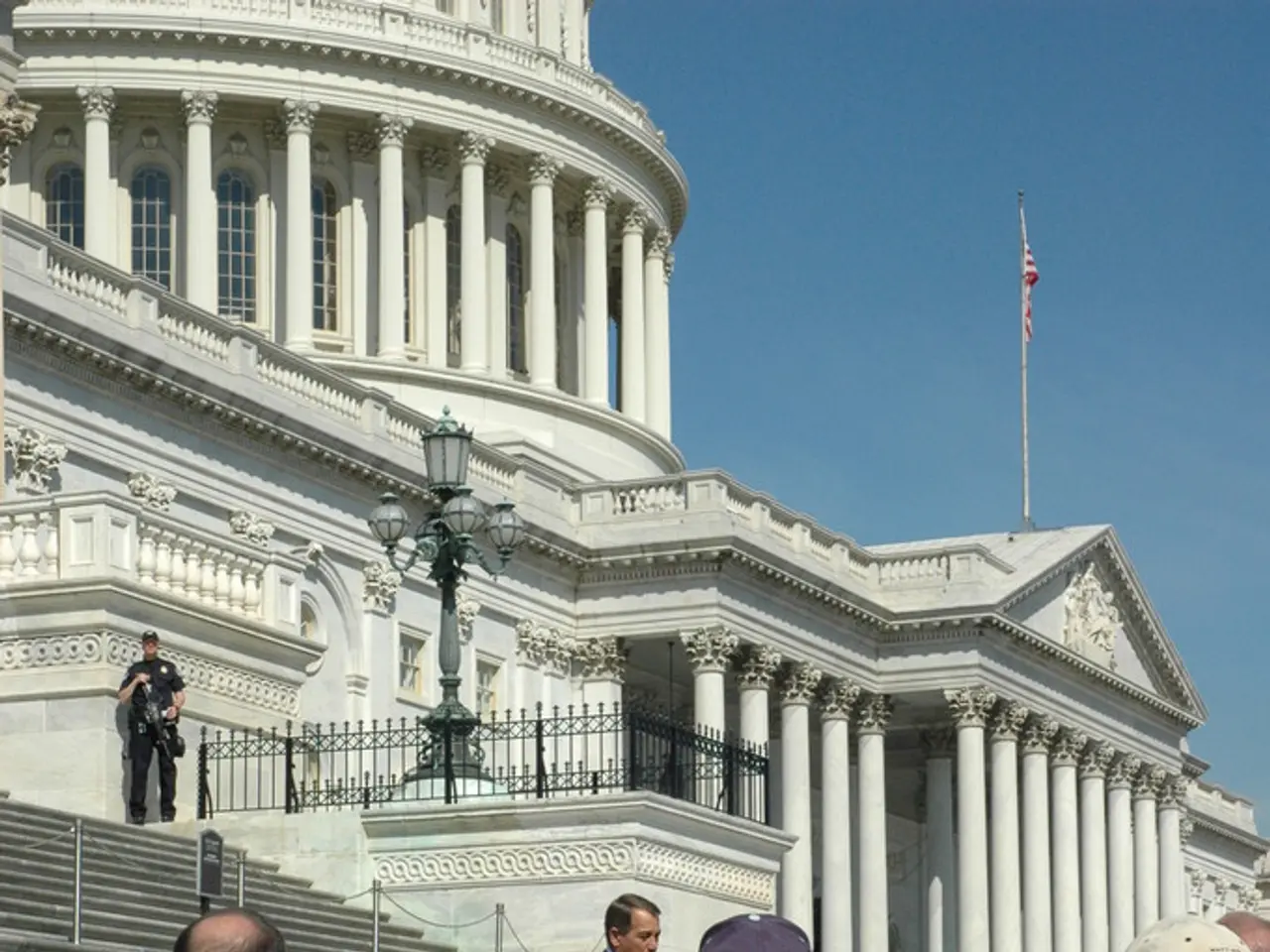Presence of National Guard troops marks the commencement of Trump's power grab in Washington D.C.
In an unprecedented move, President Trump has assumed control over the Metropolitan Police Department in Washington, D.C., and deployed more than 2,000 National Guard troops from D.C. and six Republican-led states to the capital [1][2][3]. This decision has been met with controversy, as official statistics show violent crime in the city is at a 30-year low [1][2].
The National Guard deployment was authorized under Title 32, meaning troops remain under federal authority due to D.C.'s unique status, and these are involuntary activations selected based on availability [1]. Reinforcements from states like West Virginia and other GOP-led states have joined, increasing troop numbers to over 2,000 on the streets of D.C., in locations including the National Mall, Union Station, and the D.C. Armory [1][2].
The Trump administration disputes the reported low crime figures, with the Department of Justice initiating an investigation into allegations that local officials manipulated crime statistics [1][2]. However, Washington Mayor Muriel Bowser has stated that Trump's plan is not a productive step [4].
This federal takeover is linked to political controversy, including the withholding of approximately $1.1 billion in locally raised D.C. funds by Congress, exacerbating tensions over local governance and public safety spending [2]. Critics characterize this move as a power grab that undermines D.C.’s local authority and threatens public safety, accusing the administration of abusing power under the pretext of combating crime [2][3].
Trump's latest move has cast Bowser in a sympathetic light, even among her longtime critics. Bowser contends that the power resides with Trump and that her administration can only comply with his orders, despite disagreeing with his definition of a crime emergency [5].
The deployment was in response to a perceived crime emergency, but crime in the city has been falling noticeably according to city officials [6]. More than half of those arrested are juveniles, and the extent of their punishments is a point of contention for the Trump administration [7].
Section 740 of the Home Rule Act allows the president to take over Washington's police for 48 hours, with possible extensions to 30 days, during emergencies [8]. Trump has declared states of emergency on various issues, enabling him to rule via executive order in many cases, even while the courts sort them out [9].
Trump announced he would take over the Metropolitan Police Department, with Jeanine Pirro, his replacement candidate for U.S. attorney for the District of Columbia, recently being confirmed [10]. Pirro, standing next to Trump, called his takeover "the step that we need right now to make criminals understand that they are not going to get away with it anymore." [3]
Despite the controversy, Bowser said her administration has little choice but to comply with Trump's orders, despite disagreeing with his definition of a crime emergency [5]. The situation reflects a significant federal intervention in D.C. policing involving large National Guard deployments under presidential authority, amidst disputed crime data and political controversy over local funding and governance.
- This unprecedented takeover of the Metropolitan Police Department by President Trump, accompanied by a large deployment of National Guard troops, has sparked debates around policy-and-legislation, politics, and general-news, as critics argue it undermines D.C.’s local authority and threatens public safety.
- Amidst war-and-conflicts, allegations of crime-and-justice manipulation, and contentions over local governance and funding, the Trump administration's decision to assume control over Washington's police and deploy the National Guard has escalated the political tensions, casting a new light on the city's crime situation.





